Feeling low is a natural part of being human. Sometimes, saying “I’m sad” doesn’t fully express how deeply we’re feeling. That’s why learning other ways to say “I’m sad” can help us share emotions more clearly and gently. Whether you’re talking to a friend, writing a message, or opening up about your emotions, using the right words can make your expression more personal, heartfelt, and meaningful. Below, you’ll find 20 thoughtful ways to express sadness — each with its meaning, examples, tone, and explanation — to help you communicate with warmth and care.
What Does “I’m Sad” Mean?
The phrase “I’m sad” expresses an emotion of unhappiness, disappointment, or emotional pain. It’s a way of showing that you’re not feeling your best — maybe because of loss, loneliness, failure, or even something small that’s bothering you. It’s a genuine and honest feeling that everyone experiences. Expressing sadness doesn’t make you weak; it shows that you’re in touch with your emotions and value authentic communication.
Is It Professional or Polite to Say “I’m Sad”?
Saying “I’m sad” is polite and acceptable, but it’s more common in personal conversations than in professional settings. In workplaces or formal contexts, people often use softer or more neutral expressions like “I’m feeling a bit off today” or “I’m not in the best mood.” However, in personal or emotional moments, it’s absolutely okay to say “I’m sad.” What truly matters is expressing yourself honestly but respectfully, without making others uncomfortable.
1. I’m Feeling Down
Meaning: This phrase means you’re not feeling cheerful or energetic. It describes mild sadness or emotional fatigue without sounding too heavy.
Scenario: You might use this when you’re going through a small disappointment, like a bad day at work.
Examples:
- I’m feeling down today because nothing seems to go right.
- Lately, I’ve been feeling down for no clear reason.
- I’m feeling a bit down after hearing that news.
- She noticed I was feeling down and tried to cheer me up.
- I’ve been feeling down since the weekend ended.
Tone: Gentle, honest, and emotionally open.
Explanation: “Feeling down” is a soft and approachable way to express sadness. It’s not too strong, making it ideal for everyday conversations when you want to open up without sounding overly dramatic.
2. I’m Feeling Blue
Meaning: This is a poetic or gentle way of saying you’re sad or melancholic. It has a calm, reflective tone.
Scenario: Often used when you’re quietly sad but not deeply depressed.
Examples:
- I’m feeling blue today; maybe some music will help.
- He’s been feeling blue since the vacation ended.
- I get a bit blue when it rains for days.
- I’m feeling blue after watching that emotional movie.
- She noticed I looked blue and gave me a hug.
Tone: Soft, sentimental, and empathetic.
Explanation: “Feeling blue” is a timeless expression that sounds heartfelt and mature. It works well when you want to share sadness in a subtle, gentle way.
3. I’m Not in the Best Mood
Meaning: This phrase means you’re feeling low or unhappy without revealing too much.
Scenario: Perfect for work or casual chats when you don’t want to go into details.
Examples:
- I’m not in the best mood today, maybe I just need some quiet time.
- Sorry if I seem distant — I’m not in the best mood.
- I’m not in the best mood to talk about that right now.
- I think I’ll skip tonight; I’m not in the best mood.
- She knew I wasn’t in the best mood and gave me space.
Tone: Neutral, polite, and emotionally controlled.
Explanation: This phrase keeps emotions private yet respectful. It’s perfect when you need to communicate emotional discomfort without sounding overly emotional.
4. I’m Heartbroken
Meaning: This phrase expresses deep emotional pain, often related to loss, rejection, or heartbreak.
Scenario: Used when you’re devastated by something personal, such as a breakup or disappointment.
Examples:
- I’m heartbroken after hearing about what happened.
- She’s heartbroken that things didn’t work out.
- I’m still heartbroken over the loss of my pet.
- It’s heartbreaking to see things end this way.
- I’m heartbroken but trying to stay strong.
Tone: Emotional, vulnerable, and sincere.
Explanation: “Heartbroken” captures sadness that’s deep and raw. It’s one of the most powerful ways to express emotional hurt, especially in intimate or serious conversations.
5. I’m Feeling Empty
Meaning: This means you’re experiencing a lack of emotion, purpose, or fulfillment — an inner void rather than active sadness.
Scenario: When you feel disconnected from joy or motivation.
Examples:
- I’m feeling empty inside lately.
- Sometimes I wake up feeling completely empty.
- After everything, I just feel empty and tired.
- I’m feeling empty even though everything looks fine on the outside.
- I can’t explain it — I just feel empty.
Tone: Deep, introspective, and emotional.
Explanation: “Feeling empty” shows emotional exhaustion or numbness. It’s a tender way to reveal inner sadness that goes beyond momentary sorrow.
6. I’m Hurting Inside
Meaning: This means your emotions are deeply wounded, and you’re feeling pain that’s hard to express outwardly.
Scenario: When sadness feels heavy and internalized.
Examples:
- I’m hurting inside but trying to hold it together.
- No one really sees how much I’m hurting inside.
- I’m still hurting inside from what happened last year.
- I don’t talk about it, but I’m hurting inside.
- She could tell I was hurting inside even though I smiled.
Tone: Honest, emotional, and vulnerable.
Explanation: This expression carries emotional truth and softness. It invites empathy and understanding from others.
7. I’m Feeling Low
Meaning: It shows that your energy and spirit are down, usually for a short period.
Scenario: When you’re a bit sad or tired emotionally.
Examples:
- I’m feeling low today, maybe I just need a break.
- I’ve been feeling low since last week.
- I’m feeling low and can’t focus on anything.
- Sorry if I’m quiet — I’m just feeling low.
- I’m feeling low, but I know it’ll pass soon.
Tone: Gentle, real, and compassionate.
Explanation: “Feeling low” is an approachable and simple way to communicate sadness without sounding too heavy or dramatic.
8. I’m Struggling Emotionally
Meaning: You’re finding it difficult to manage your emotions or keep yourself together.
Scenario: Use this when sadness feels overwhelming or constant.
Examples:
- I’m struggling emotionally and need some time to rest.
- Lately, I’ve been struggling emotionally with everything going on.
- I’m struggling emotionally, but I know I’ll get through it.
- She said she’s struggling emotionally and needs support.
- I’m struggling emotionally, trying to make sense of it all.
Tone: Honest, sincere, and compassionate.
Explanation: This phrase shows emotional awareness and maturity. It helps communicate that you’re going through a tough time and could use understanding.
9. I’m Feeling Broken
Meaning: This means you feel emotionally shattered or hopeless due to pain or loss.
Scenario: When you feel like your spirit is crushed.
Examples:
- I’m feeling broken after everything that happened.
- I’m broken inside but pretending to be fine.
- She’s feeling broken but keeps smiling.
- I feel broken and can’t find the strength to move on.
- I’m feeling broken but hoping time will heal me.
Tone: Deeply emotional, raw, and honest.
Explanation: “Feeling broken” captures profound sadness. It’s best used when you want to express how truly affected you are.
10. I’m Not Okay
Meaning: This phrase honestly communicates that you’re struggling, without needing to explain everything.
Scenario: When you want to open up simply but truthfully.
Examples:
- I’m not okay right now, but I will be eventually.
- Sometimes I say I’m fine, but I’m not okay.
- I’m not okay — I just need a moment alone.
- I’m not okay today, and that’s alright.
- It’s okay to admit you’re not okay.
Tone: Real, emotional, and human.
Explanation: This phrase has become a modern, empathetic way to express sadness. It’s relatable, honest, and shows emotional strength in vulnerability.
11. I’m Feeling Lost
Meaning: This phrase expresses confusion and emotional emptiness — when you’re unsure about your direction, purpose, or feelings.
Scenario: Use this when you’re emotionally adrift or uncertain about what to do next.
Examples:
- I’m feeling lost and don’t know which way to go.
- Lately, I’ve been feeling lost in my thoughts.
- I’m feeling lost without the people I care about.
- Sometimes I just feel lost and disconnected from myself.
- I’m feeling lost, but I’m trying to find my way back.
Tone: Reflective, sincere, and compassionate.
Explanation: “Feeling lost” communicates emotional uncertainty and sadness with depth and tenderness. It’s perfect when you’re experiencing confusion or an emotional fog and want others to understand gently.
12. I’m Feeling Hopeless
Meaning: This phrase expresses a deep sense of despair or lack of optimism about the future.
Scenario: Used when sadness feels heavy and overwhelming, often after disappointment or loss.
Examples:
- I’m feeling hopeless about everything right now.
- She said she’s feeling hopeless and can’t find motivation.
- I’m feeling hopeless, like nothing is improving.
- Lately, I’ve been feeling hopeless and stuck.
- I’m feeling hopeless, but I know this feeling will fade eventually.
Tone: Serious, emotional, and heartfelt.
Explanation: “Feeling hopeless” shows deep emotional exhaustion. It’s powerful and raw, so it should be used with care when sharing genuine feelings with trusted people.
13. I’m Feeling Overwhelmed
Meaning: This means you’re emotionally and mentally overloaded — not just sad, but burdened by too many feelings or pressures.
Scenario: When sadness combines with stress or anxiety.
Examples:
- I’m feeling overwhelmed with everything happening at once.
- I’m so overwhelmed that I just need a quiet moment.
- She’s feeling overwhelmed by her responsibilities.
- I’m feeling overwhelmed and can’t think straight.
- I’m feeling overwhelmed, but I’ll take things one step at a time.
Tone: Honest, compassionate, and understanding.
Explanation: This expression blends sadness with stress, helping you explain emotional overload. It’s relatable, especially in today’s fast-paced world.
14. I’m Feeling Disheartened
Meaning: This means you’ve lost enthusiasm or motivation due to disappointment or repeated failure.
Scenario: When you’ve tried hard but things aren’t working out.
Examples:
- I’m feeling disheartened after all the effort I put in.
- She’s disheartened by how things turned out.
- I’m feeling disheartened but still hopeful deep down.
- I’m disheartened that my hard work didn’t pay off.
- Sometimes I feel disheartened by life’s challenges.
Tone: Thoughtful, calm, and slightly formal.
Explanation: “Disheartened” is a refined word that expresses sadness mixed with disappointment. It’s perfect for professional or reflective contexts.
15. I’m Feeling Drained
Meaning: This means you feel emotionally and physically exhausted — as if sadness has taken your energy away.
Scenario: When life feels too heavy and you’re tired from emotional struggles.
Examples:
- I’m feeling drained after everything I’ve been dealing with.
- I’m drained and need time to recharge.
- Lately, I’ve been emotionally drained from all the stress.
- I’m drained but still trying to stay positive.
- I’m feeling drained — maybe a quiet night will help.
Tone: Calm, reflective, and real.
Explanation: “Feeling drained” is a common but emotionally powerful way to show sadness. It tells others you’re emotionally tired, not just unhappy.
16. I’m Feeling Heavy-Hearted
Meaning: This phrase expresses a deep, quiet sadness that weighs on your heart.
Scenario: Use it when you’re sad about something meaningful, like loss or separation.
Examples:
- I’m feeling heavy-hearted after hearing that news.
- She’s heavy-hearted thinking about how things ended.
- I’m heavy-hearted today, just missing how things used to be.
- I’m feeling heavy-hearted but trying to stay kind to myself.
- It’s a heavy-hearted kind of morning — quiet and sad.
Tone: Poetic, emotional, and warm.
Explanation: “Heavy-hearted” is a beautiful, emotional phrase that conveys quiet grief. It sounds gentle and respectful, often used in writing or heartfelt speech.
17. I’m Feeling Lonely
Meaning: This means you’re feeling isolated, emotionally disconnected, or longing for companionship.
Scenario: When you miss connection or support from others.
Examples:
- I’m feeling lonely even in a room full of people.
- Lately, I’ve been feeling lonely and distant.
- I’m lonely, but I know this phase will pass.
- I’m feeling lonely and missing familiar faces.
- It’s been a lonely week; I just need someone to talk to.
Tone: Gentle, honest, and vulnerable.
Explanation: “Feeling lonely” is one of the most relatable expressions of sadness. It conveys emotional depth and human need for connection.
18. I’m Feeling Miserable
Meaning: This means you’re deeply unhappy or emotionally in pain. It’s stronger than “sad.”
Scenario: When you feel emotionally defeated or heartbroken.
Examples:
- I’m feeling miserable after that argument.
- I’ve been miserable ever since that happened.
- She’s miserable and can’t seem to cheer up.
- I’m miserable because everything feels wrong lately.
- It’s miserable to feel this way, but I know it’ll get better.
Tone: Strong, emotional, and expressive.
Explanation: “Miserable” is an intense word that paints a vivid picture of sadness. It’s sincere and deeply emotional but should be used thoughtfully.
19. I’m Not Feeling Myself
Meaning: This means you don’t feel like your usual self — emotionally off-balance or low.
Scenario: When you’re sad or drained but can’t explain why.
Examples:
- I’m not feeling myself lately; something feels off.
- She’s not feeling herself since the bad news.
- I’m not feeling myself — maybe I just need rest.
- I’m not feeling myself today, but I’ll bounce back.
- Sometimes I’m just not feeling myself and that’s okay.
Tone: Subtle, introspective, and kind.
Explanation: “Not feeling myself” is gentle and discreet. It works well in both casual and professional situations to communicate sadness without oversharing.
20. I’m Having a Rough Time
Meaning: This phrase means you’re going through a difficult emotional period or facing personal challenges.
Scenario: Use this when sadness stems from life struggles or stressful events.
Examples:
- I’m having a rough time dealing with everything.
- It’s been a rough time, but I’m doing my best.
- She’s having a rough time adjusting to the change.
- I’m having a rough time lately, but I’m hopeful.
- I’ve been having a rough time emotionally, trying to stay grounded.
Tone: Honest, strong, and empathetic.
Explanation: “Having a rough time” is a humble, kind way to express that you’re struggling. It feels real, relatable, and opens space for compassion.
Conclusion
Sadness is a natural emotion that connects us all as human beings. Finding other ways to say “I’m sad” helps express your feelings with clarity, depth, and sensitivity. Each phrase above carries its own emotional color — from mild disappointment to deep sorrow — allowing you to choose words that feel most authentic. Remember, expressing sadness isn’t weakness; it’s an act of emotional courage and honesty that brings people closer together.
FAQs
1. Why should I use other ways to say “I’m sad”?
Using alternative phrases helps express your emotions more precisely. It lets others understand how you truly feel, whether it’s light sadness or something deeper.
2. Which phrase is best for professional settings?
Phrases like “I’m not feeling myself” or “I’m not in the best mood” are polite and appropriate for workplace conversations because they sound respectful and composed.
3. What if I don’t want to sound too emotional?
You can use softer options like “I’m feeling low” or “I’m having a rough time” — they communicate emotion without sounding too heavy or dramatic.
4. Is it okay to tell someone “I’m not okay”?
Absolutely. It’s a brave and honest way to open up. Sharing vulnerability can invite support and empathy from people who care about you.
5. How can I comfort someone who says they’re sad?
Offer understanding and gentle support. You can say things like, “I’m here for you,” or “That sounds really hard; I’m listening.” Compassion helps more than advice.
Emma Brooke is a content writer at GrammerWay, specializing in English grammar, writing clarity, and common language errors. She creates easy-to-follow guides that help readers write accurately and confidently.
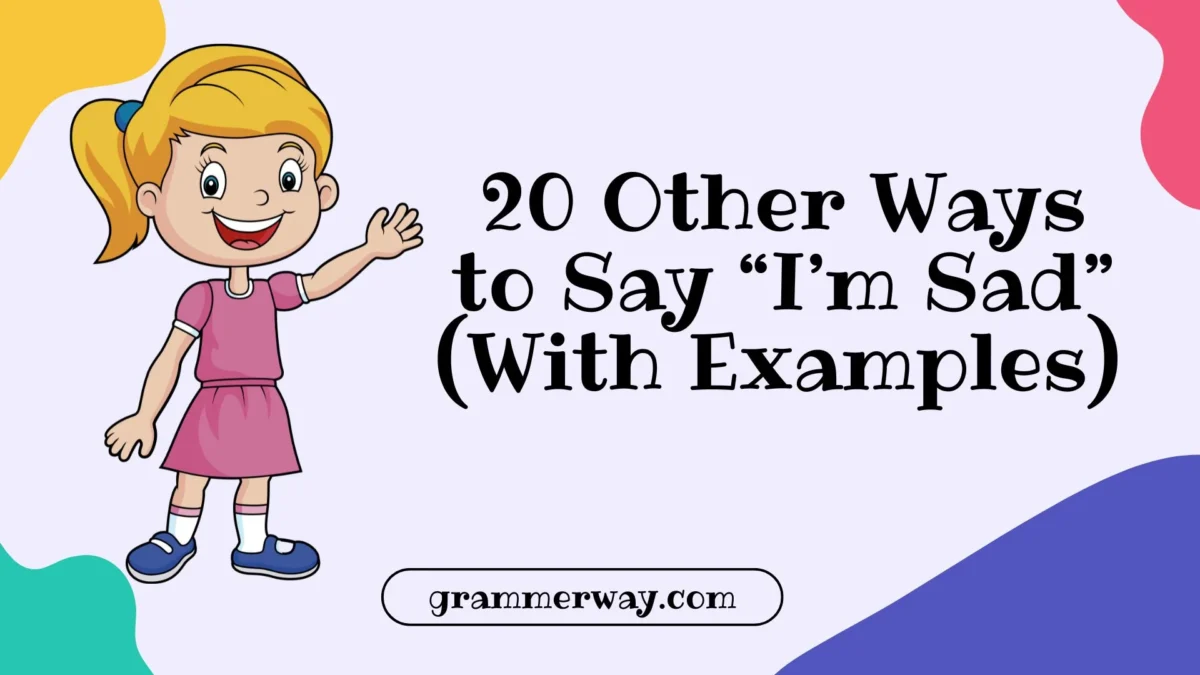
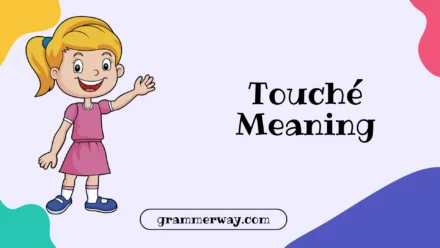
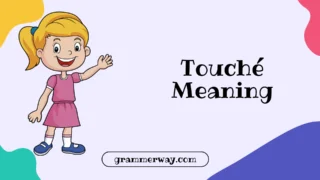
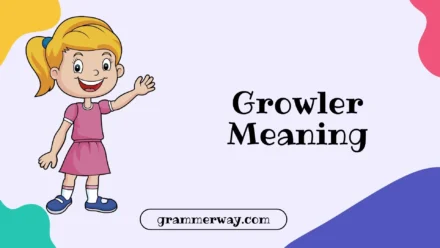
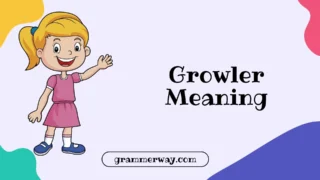
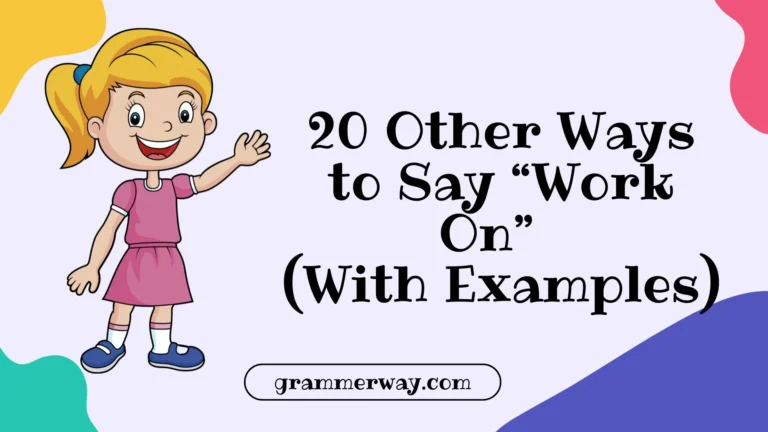
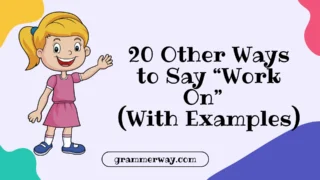
Leave a Comment